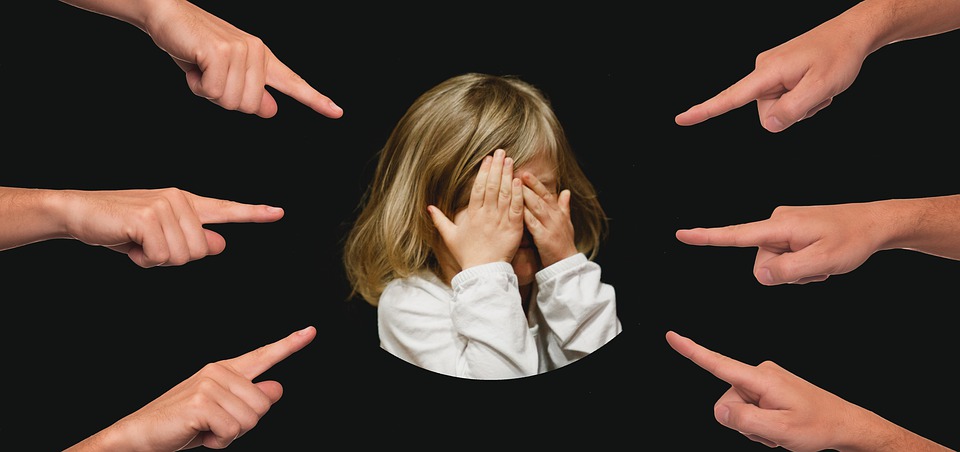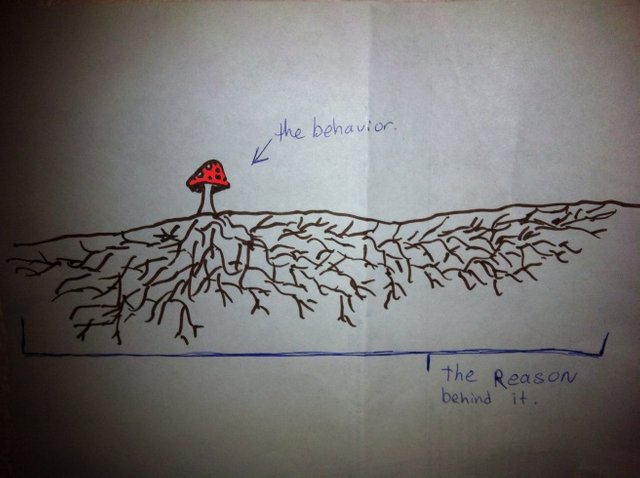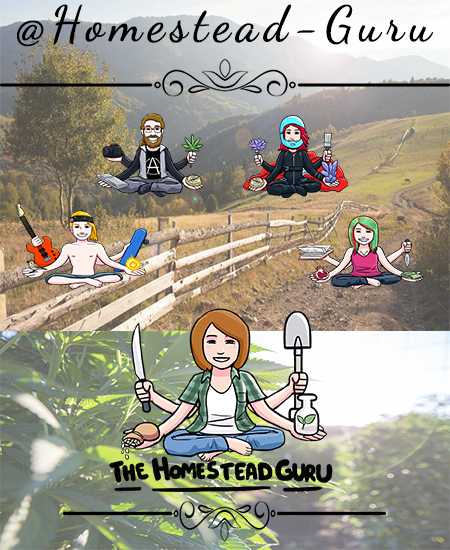Pavlov, Roller Skates, and Why We Don't Punish Our Kids - Unschooling
I originally wrote this in 2012, when my children were much younger.
Gentle discipline. That sounds pretty progressive, right?
Not spanking or hitting children IS still a pretty progressive concept in our society (unfortunately). In my opinion, it’s disheartening that we’re still not collectively as a culture at the place where hitting kids is just accepted as absurd, archaic, and wrong for any reason…
But I digress. This article isn’t about discipline. It’s about the ways in which we are moving forward...slowly.
I’m obviously not the perfect parent (as if there is such a thing)–but I am willing to admit there’s still plenty of room for positive change.
One of the things–tools, if you will–that parents often turn to, or use more heavily, when they are working toward a more gentle way of relating to their kids, is using rewards and consequences.
“Hey, the kids did what I told them to, there was no yelling, hitting or spanking, and everything is great!”Well, yes. But no.
There is much more going on with rewards and consequences than just the immediate behavior changes that are effected.
For many parents, the question of whether rewards and consequences “work” is rather a moot point.
We don’t care whether they “work”, because we are more concerned with the long-term behavioral and psychological consequences of using such techniques.
Incidentally, of course rewards “work”. Pavlov proved that with dogs in the 1890s.

Yet I deeply question the integrity of behaviorism when it's applied to human beings.
Even very small children are beings who are intrinsically motivated to think critically and to make decisions based on internal judgments, not external carrots and sticks.
For more on this, please check out the book Unconditional Parenting, by Alfie Kohn.
The first chapter goes directly into behaviorism and why it’s not appropriate for parenting.
The thing is, the concepts of rewards and punishment are so ingrained in our culture and our thinking, that it’s hard to see how it might be damaging.
Think of it this way: We are putting out little fires again and again, instead of investing a lot of time and money to create a fire-resistant structure.
And we’re neglecting to notice all the little scorched spots adding up…
I am not merely interested in changing the day-to-day behavior of my kids--
–and I believe that that’s all rewards and punishments really do.
Behavior is really just a symptom of the way that the child is currently perceiving the world to operate.

Behavior is like a mushroom (incidental), while the essential substance of belief/worldview (which manifests behaviors of all sorts) is the mycelium–invisible, yet vast and essential.
Just stamping out the mushroom won’t get rid of the mycelium from which it sprung.
Punishing “bad’ behavior might get rid of the behavior, but punishment does not help the child to internalize why the behavior is being labeled as “bad”–WHY he shouldn’t do it.
When a kid is punished, he is learning that the adults around him don’t like when he does X, so he learns to avoid doing x when they’re around.
Or–perhaps just as bad–he learns that pleasing the people in his external world is what’s important in life, so he learns to dissociate from and subvert those parts of himself that are labeled as “bad” by the people around him.
He never learns to question why X is “bad” is the first place; what circumstances make X “bad;” or whether X is indeed “bad” at all.
Punishments create a worldview in which the child learns to look to others for what’s right and wrong, and critically thinking about WHY things are the way they are is not emphasized.
Even the laws of the land, ideally, are followed because they make sense, because there is (ostensibly) a rhyme and reason to them that the public generally agrees with.
We don’t all drive on the right side of the road solely because we’re afraid we’ll get a traffic fine or go to jail if we don’t.
Is this a stretch for you? It was for me, too, in the beginning.
There are plenty of things in life with natural negative consequences–we don’t need to arbitrarily create more of them to teach kids about actions having consequences.
If your child leaves his roller skates out in the rain, and they get mildewed, he will learn something from that without any additional negativity imposed by you.
He’ll have to scrub the mildew off, or the skates will need to be thrown out; he’ll have to save his money, or wait until you can buy another pair for him. He might miss out on skating with his friends for awhile, and so on.
Incidentally, this is not the same thing as you purposely cleaning up the rest of the yard but leaving his skates there to “teach him a lesson”.
There’s a line between natural consequences and on-purpose consequences–and you also don’t want to miss an opportunity to be nice to your child for the sake of niceness.
The world may be a cruel place, but you don't have to be the one to reinforce that reality. The easiest way to teach your child kindness is by being kind to him.
Next time he might remember his roller skates, and choose to also bring your garden tools in along with his skates, just for the sake of niceness.
Think the best of your child–giving him the benefit of the doubt will teach him to do the same with others…eventually.
Visit the site here!

I think that children should be treated kindly other wise if we treat children badly it has bad effects on them
The quetion why
This ---> "Punishments create a worldview in which the child learns to look to others for what’s right and wrong [...]"
@homestead-guru
I really do appreciate your point of view. I do not agree with all but you strike some points that drills right home.
I am reading this again. Your take on "effects of reward and consequence style" on a child's long-term behavioural tendencies is something i am looking into in a great deal.
Thanks again
Good Post @homestead-guru thank you for info
los niños deben saber que existe una autoridad en casa, particularmente recibo consejos de mi madre que es licenciada en educación , aunque he tenido momentos difíciles con mi hijo mayor que ahora tiene 15 años ,estamos sobrellevando la situación.
To listen to the audio version of this article click on the play image.

Brought to you by @tts. If you find it useful please consider upvote this reply.
Nice post and very good information in this post
If you don't punish them, what do you do when they steal or hit someone?
The natural consequences that occur when your child steals or hits are often enough to get them to understand why what they did was unhelpful in getting along peacefully with other people. Punishment is about inflicting pain or fear for the sake of control-over. It's might-makes-right. Not necessary.
If parents first at all would also start to recognize the property of their children, then the children would maybe also have it easier to accept that stuff from others their property. Instead of this I observe constantly how children receive or possess something and parents command their children to share it with other children like they are communists (and probably the most are without recognizing it).
But on the same time the same parents expect that their children respect their property and property of others. Also you can observe from the very same parents how they take away somebody else property without a shame because, it is nothing, anyway they deserve it more, they need it more etc. And funnily the very same "high moral" parents are not amused if somebody would tell them to share their things like cars, cell phones, watches, pen's, clothes....
How would it be in first place to be a good example? Punishment leads to nothing else than fear, while unconditionally love leads to empathy and moral. Sometimes I get wet eyes when I observe my daughter mastering so much situation so much better then me - and opening my eyes.
When you come to a point where you recognize self-ownership, and the non aggression principle as the only moral and right decision (not even speaking of empathy), you will find out that punishing in first place is wrong because of both.
While I'm with so much rage and hatred, letting me feel like I want to start a general genocide on human race because of the mostly disgusting behavior of all this "moral" people walking over this planet. My daughter also have difficulties with all this aggression, mainly from stronger human beings to weaker beings (like also their children). But she is in first place empathetic, while I get very aggressive against the aggressor. I was punished in childhood, she never. And in 4 years I have seen when she hit somebody, than she is absolute right on it. Because it is also the right of the children to defend them self - even against there parents.
Some day I will write about some experiences.
So my question is for you, if you don't love your child unconditionally, how do you make a better future for your children?
Thats a wonderful format,
But there's a duality of issues if we were to say it may work for all.
I have known too many adults in life who couldn't handle information that caused them stress or sadness because they were raised this way.
They shut everything that does not make them feel happy out, wich if we are ever going to have a functioning world we also need to deal with the reality of the not so happy stuff.
._. I suppose a lot of what I "discipline" my kids for has to be with regards to making choices that are harmful to others. Where I would prefer they reflect on the reasoning for reprocussion so they can grow and learn to see their behavior would not fly for myself as an adult either and why.
Wishing you all the best with your own format however!
Ahh, but discipline is a large part of our lifestyle--! Self-discipline and the guidance that's given to form self-discipline. Punishment is not the same as discipline at all.
Hmm. Meaning, their parents handled anything unpleasant for them? I was raised that way....and so it's important that my kids have a firm foundation in handling the responsibility of their own existence, as much as is appropriate for their respective ages....which is often much more than most adults would think. We frequently underestimate children, and it does them no favors.